Resources
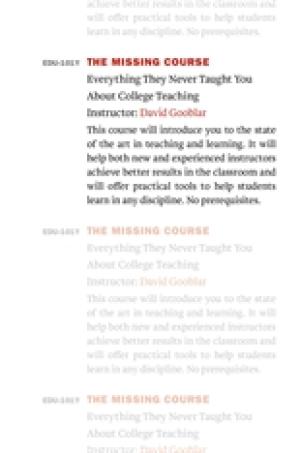
Professors know a lot, but they are rarely taught how to teach. The author of the Chronicle of Higher Education’s popular “Pedagogy Unbound” column explains everything you need to know to be a successful college instructor. College is changing, but the way we train academics is not. Most professors are still trained to be researchers first and teachers a distant second, even as scholars are increasingly expected to excel in the classroom. There has been a revolution in teaching and learning over the past generation, and we now have a whole new understanding of how the brain works and how students learn. But most academics have neither the time nor the resources to catch up to the latest research or train themselves to be excellent teachers. The Missing Course offers scholars at all levels a field guide to the state of the art in teaching and learning and is packed with invaluable insights to help students learn in any discipline. Wary of the folk wisdom of the faculty lounge, David Gooblar builds his lessons on the newest findings and years of experience. From active-learning strategies to course design to getting students talking, The Missing Course walks you through the fundamentals of the student-centered classroom, one in which the measure of success is not how well you lecture but how much students learn. Along the way, readers will find ideas and tips they can use in their classrooms right away. (From the Publisher)
How is PhD pedagogy conceptualised in contemporary discourse? Doctoral pedagogy is usually figured as supervision, often, in particular in literature and popular culture, in the traditional dyadic form. Like other kinds of teachers, supervisors seem to hold a fascination, particularly for writers of novels and television dramas. In research literature, the attention garnered by supervision stems from another goal, a sense of needing to be more reflexive about it as a form teaching, usually by showing supervision at work through transcripts of supervisory meetings or through student and supervisor accounts of their experience of supervision. This examination of what is (or was) essentially a private form of teaching has operated in tandem with an increased scrutiny on supervision by institutions, as articulated in institutional policies, and a fostering of self-induced scrutiny through manuals on supervision. Both of these trends are suggestive of a perception at the end of the twentieth century, aided by studies showing high attrition rates and lengthy times to submission, that supervision was often not going well.
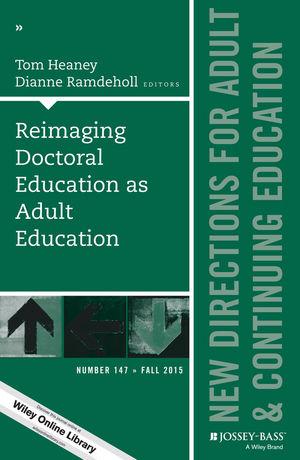
Click Here for Book Review This volume looks at graduate education, specifically the doctorate, through the lens of adult education practice. Students in doctoral programs are, after all, adults. Building on principles of adult learning, the authors provide examples of academic excellence achieved through the incorporation of best practices in adult education, including: - practical suggestions for democratically negotiating the curriculum - best practices for nurturing responsible action for social justice, - ways of encouraging collaborative and noncompetitive learning and research, and - support in shifting paradigmatic assumptions beyond the Eurocentric frame. This is the 147th volume of the Jossey Bass series New Directions for Adult and Continuing Education. Noted for its depth of coverage, it explores issues of common interest to instructors, administrators, counselors, and policymakers in a broad range of education settings, such as colleges and universities, extension programs, businesses, libraries, and museums. (From the Publisher)
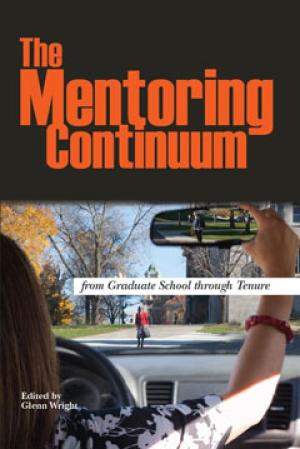
Skill at mentoring has . . . attained a certain cachet among those at all career stages who find in it an alternative way of being in academe-one that tilts away from the endemic competition of the research environment in favor of cooperation and mutual purpose. Part of mentoring’s appeal lies in its ability to gesture in two directions at once: forward . . . to new modalities and more egalitarian relationships, and backward, to a tradition of cross-generational support and identification as old as universities themselves, and that continues to feed the romance of the academic life in the minds of would-be faculty. (From the Publisher)

Click Here for Book Review Abstract: It is no secret that American graduate education is in disarray. Graduate students take too long to complete their studies and face a dismal academic job market if they succeed. The Graduate School Mess gets to the root of these problems and offers concrete solutions for revitalizing graduate education in the humanities. Leonard Cassuto, professor and graduate education columnist for The Chronicle of Higher Education, argues that universities’ heavy emphasis on research comes at the expense of teaching. But teaching is where reforming graduate school must begin. Cassuto says that graduate education must recover its mission of public service. Professors should revamp the graduate curriculum and broaden its narrow definition of success to allow students to create more fulfilling lives for themselves both inside and outside the academy. Cassuto frames the current situation foremost as a teaching problem: professors rarely prepare graduate students for the demands of the working worlds they will actually join. He gives practical advice about how faculty can teach and advise graduate students by committing to a student-centered approach. In chapters that follow the career of the graduate student from admissions to the dissertation and placement, Cassuto considers how each stage of graduate education is shaped by unexamined assumptions and ancient prejudices that need to be critically confronted. Written with verve and infused with history, The Graduate School Mess returns our national conversation about graduate study in the humanities to first principles. (From the Publisher)
Indicators of the processes that enhance GTA teaching and professional development: the use of reflective practice, feedback, mentorship, and engagement in teaching practice. Including: online environment,  role-play activity, micro-teaching, and  independent course instruction.
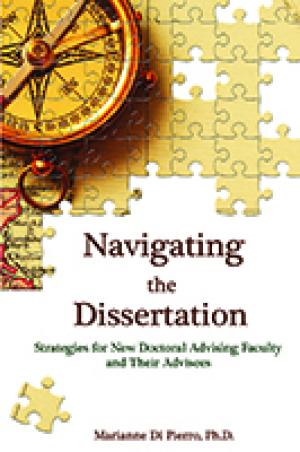
Click Here for Book Review Abstract: This book examines the intricacies of the doctoral educational process and delineates a process for continuous improvement that will shape and enhance better professional relationships between dissertation advisors and their advisees and cultivate opportunities for increased retention and graduation. The book includes critical principles, interwoven with students’ real life experiences which serve as illustrative vehicles. Moreover, its innovative approach – a book written for new advisors and their advisees or for seasoned advisors seeking new ways to communicate with their advisees – departs from other books that provide generally only a one-dimensional view, usually from the student’s perspective. The titles of many of these are couched in metaphors of survival and overcoming a threat, rather than centered in strong initiatives that will lead to timely graduation in a supportive and encouraging environment. This book offers innovative and pioneering leadership approaches to transport advisors and advisees to a successful outcome. (From the Publisher)
The actual program is limited to graduate students at the University of North Texas, but the website provides a helpful description of an online program to prepare graduate students for teaching roles in higher education by equipping them with teaching skills, knowledge about teaching strategies and peer support.
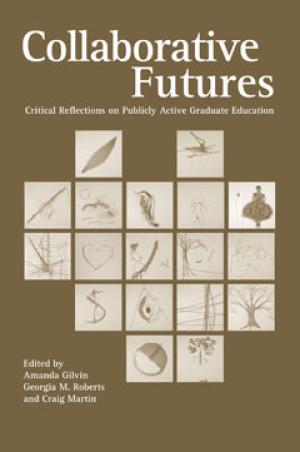
Collaborative Futures places graduate education at the center of ongoing efforts to legitimize publicly engaged scholarship within the academic profession. It is indispensable reading not only for graduate students seeking inspiration, resources, and usable frameworks for their engaged scholarship, but for the faculty who are called upon to mentor them and for university administrators seeking encouraging answers to questions about the future of graduate education. Given the erosion of the tenure system and the casualization of teaching labor, graduate programs and professional organizations in many fields now recognize the imperative to prepare doctoral students for careers wholly or partially outside academe. This book powerfully indicates both the need and the means to change institutional cultures and forge a publicly active path for graduate education. (From the Publisher)
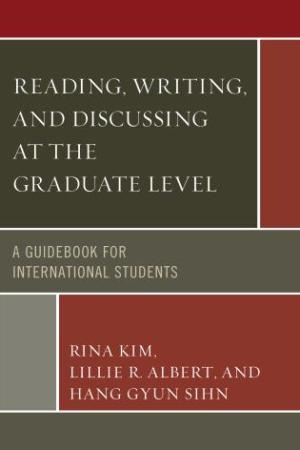
Click Here for Book Review Abstract: The purpose of this book is to help international students navigate the academic issues they will encounter while attending graduate school in the United States. This book provides guidelines for conquering the obstacles that international graduate students often face, such as developing independent ideas based on required readings, participating in classroom discussions effectively, organizing academic papers, and effectively managing academic work and social relationships. This book is an invaluable tool for international graduate students and their instructors and mentors. (From the Publisher)